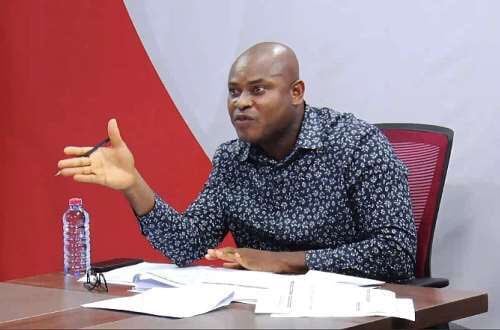The political landscape in Ghana has been shaken by President John Dramani Mahama’s decision to suspend Chief Justice Gertrude Araba Esaaba Sackey Torkornoo, sparking accusations of dictatorial tendencies from the opposition New Patriotic Party (NPP). Richard Ahiagbah, the NPP’s National Communications Director, has vehemently condemned the suspension, portraying it as a calculated move to undermine Ghana’s democratic foundations. He argues that the suspension, based on petitions alleging misconduct, is a politically motivated maneuver designed to remove the Chief Justice and cripple the judiciary’s independence. Ahiagbah warns that if the investigative committee recommends the Chief Justice’s removal, it will signify a complete collapse of Ghanaian democracy under President Mahama and the ruling National Democratic Congress (NDC).
The NPP views the suspension as part of a broader pattern of actions by President Mahama that threaten the country’s democratic institutions. Ahiagbah’s characterization of the President as a dictator reflects a deep-seated concern within the opposition that Mahama is consolidating power and suppressing dissenting voices. The NPP’s vow to “fight back” suggests a potential escalation of political tensions and a determination to resist what they perceive as an authoritarian overreach. This confrontation between the ruling party and the opposition raises serious questions about the future of Ghana’s democratic trajectory.
The suspension of the Chief Justice has ignited a debate about the balance of power between the executive and judicial branches of government. The NPP’s argument centers on the perception that the President is using his authority to unduly influence the judiciary, a cornerstone of any democratic system. The invocation of Article 146(6) of the 1992 Constitution, which allows for the suspension of a Chief Justice pending an investigation, has become a focal point of contention. The NPP contends that this constitutional provision is being exploited for political gain, rather than applied in good faith to address legitimate concerns about judicial misconduct.
The formation of a committee to investigate the petitions against the Chief Justice further complicates the situation. The NPP’s skepticism about the committee’s impartiality adds another layer of distrust to the proceedings. Ahiagbah’s assertion that the committee might “acquiesce to the political plot” suggests a pre-determined outcome, potentially undermining the credibility of the entire process. This raises concerns about the fairness and transparency of the investigation, and whether it can truly provide an impartial assessment of the allegations against the Chief Justice.
The unfolding events in Ghana highlight the fragility of democratic institutions, particularly in politically charged environments. The accusations of dictatorship leveled against President Mahama, combined with the suspension of the Chief Justice, paint a picture of a democracy facing a critical test. The NPP’s vocal opposition and promised resistance signify a potential for increased political instability. The outcome of the investigation into the Chief Justice’s conduct will have significant ramifications, not only for the judiciary but also for the broader political landscape of Ghana.
This situation underscores the importance of upholding the principles of judicial independence and respecting the separation of powers. A robust and independent judiciary is essential for safeguarding democratic values and ensuring accountability within the government. The ongoing controversy in Ghana serves as a reminder of the vigilance required to protect democratic institutions from undue political interference. The future of Ghana’s democracy may well depend on the resolution of this conflict and the restoration of public trust in the impartiality of the judicial system.














